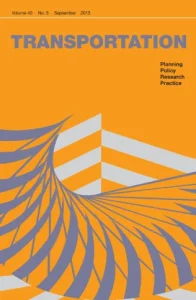Článek se věnuje přínosu carsharingu k proenvironmentálnímu chování – porovnává uživatele carsharingu, kteří mají k dispozici vlastní automobil, a těch bez něj.
Abstrakt: This paper provides insights into differences in carsharing users‘ attitudes, motives for joining carsharing, and transport behaviour between users with and without another car at their disposal. It builds on revealed and stated data about members of the oldest carsharing company in the Czech Republic. Carsharing adopters without a car utilise shared cars more intensively than carsharing users with a car available in their household. On the other hand, unlike the second group, they drive fewer kilometres by car in total. The car availability in households also influences the shift in car use after joining carsharing. The sale of a car thanks to adopting carsharing is a factor leading to a decrease in overall car use. Those who have a car at their disposal within their household have a lower probability of decreasing kilometres driven after joining carsharing. Households without an additional car available seem to be less car-dependent on average than those utilising carsharing as a second or third car. They tend to be more environmentally conscious and more inclined towards policies supporting alternative modes and restricting private car use, although both groups share these beliefs. The findings open a debate over whether carsharing increases the legitimacy of restrictive transport measures against private car ownership and use.
Citace: Vejchodská, E., Brůhová Foltýnová, H. & Rybičková, A. (2023). Carsharing users’ behaviour and attitudes. The role of car availability in households. Transportation. https://doi.org/10.1007/s11116-023-10386-0.
Ke stažení: ↓ Carsharing users’ behaviour and attitudes. The role of car availability in households.



